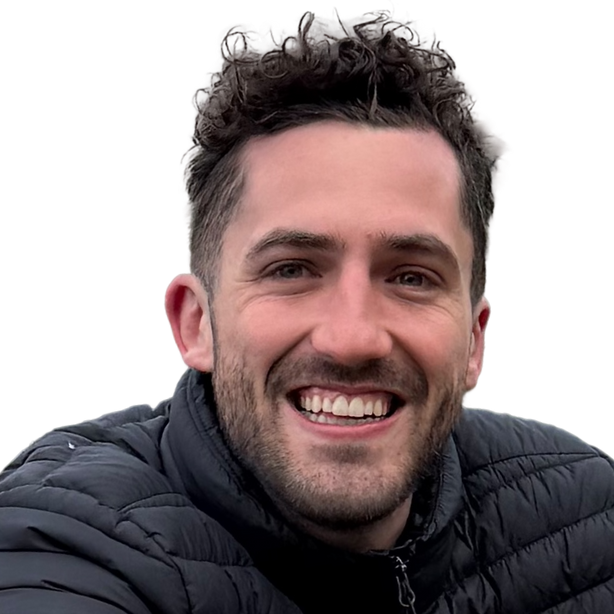

Martin Schwitzner
VP Product at Marshmallow
Making Insurance Sexy - How Is Marshmallow Different
The car insurance provider Marshmallow went from an idea to one of the latest UK unicorns in just 4 years! Founded by twin-brothers Oliver and Alexander, and their friend David, the company is turning the centuries-old insurance industry on its head. We spoke to their VP of Product Martin Shwitzner to find out how they’re achieving this phenomenal growth.
We discussed:
- How did they do it? How is Marshmallow different from a traditional car insurance provider?
- The mechanic and approach to generating over 8,000 (mostly) positive online reviews (4.6 rating on Trustpilot).
- How can you deepen the relationship with your customer when in reality they don’t want to hear from you;
- How the role of the VP Product changes when the company moves from series A to series B;
- The product tweak that turned into a massive win (it involves the mobile app!);
- What roles the company is hiring for and how they’re assessing the right candidates.
Marshmallow is actively hiring at the moment, so make sure you check their Careers page – plenty of exciting opportunities in Product & Tech, Design, Operations, and more!
Transcript
Please note this transcript is automated
Desi Velikova 00:00
Hi, everybody, and welcome to another episode of The Product Show. Have you heard of Marshmallow? And I’m not talking about sweets here. Marshmallow is a UK-based car insurance provider that made a name for itself after becoming one of the latest UK unicorns. Founded by twin brothers Alexander and Oliver, and their friend David, the company went from an idea to unicorn in four years. So how are they different? Unlike traditional insurers, they use a new data-driven approach to determining risk, which allows them to offer lower prices to customers that traditional insurance companies struggle with, like immigrants, expats and nomads. To learn how they’re achieving this phenomenal growth, I spoke to their VP of Product Martin Schwitzner. Martin is also an ex Amazon, Open Table and Fly.com product leader, so you’ll hear plenty of useful tips in the next 35 minutes. Enjoy this episode. And as usual, don’t forget to subscribe to our channels wherever you’re watching.
01:04
Welcome to the product show insightful interviews with founders and tech leaders sharing how they hack product growth.
Desi Velikova 01:18
Hi, Martin, welcome to The Product Show.
Martin Schwitzner 01:21
Hi, Desi. Happy to be here.
Desi Velikova 01:23
It’s a pleasure to have you. So VP of product at one of your the latest unicorns. That must be quite exciting! So tell me a little bit more about your professional journey so far. And what does your role at Marshmallow entail?
Martin Schwitzner 01:39
Sure. Yeah, I originally started in film, and then kind of from film to video games into tech. And when I made that jump, I thought, you know, product is probably the role that makes more sense for me. And so I started working at a company called Travel Zoo, and they founded an internal startup, Fly.com, which was like meta search engine. So kind of competing with Kayak and Skyscanner. So back then, kind of by the end of it led the European product and marketing teams. And then I worked at Open Table and quite an interesting time for the company. So we got acquired halfway into my tenure there by what’s now the booking group Booking.com. And that, among other things, kind of worked on the integration of the Open Table product with that group. And then kind of went back to my film roots a bit went to Amazon, where we’re at Prime Video, and then kind of had a long project with devices group, so the Fire TV devices group as well. And then after Amazon, I kind of wanted to do more. I kind of gotten bigger and bigger in terms of the company size, and I wanted to specifically do more startup stuff. And so worked with Glue, which is a logistic startup that’s kind of an SmartLock based ecosystem for in home delivery of services and goods, and kind of build the initial product and design function there. And then I got called back to video worked in Germany and was part of the senior leadership team that built basically, what’s a German Hulu, streaming platform for live broadcast, ad supported video on demand and subscription packages company called Joyn. And that was really exciting. So we launched it, and we went from zero to like 7 million monthly active users in a few months. And then I was on my way to South America, it started working for Rappi which is, I think, at the moment, the biggest Latin American startup, so they do food delivery, ecommerce, and grocery deliveries. And I was leading the kind of customer facing product for the restaurant product in eight markets in Latin America. Long story short, that COVID kind of scuppered that and we no longer could move to Bogota in a timeframe that made sense for us as a family. And then, so, we so I kind of did some consulting because I wanted to find something in a way that I could stick with and kind of get my teeth into and so helped Lantun, a health tech startup and we worked with them for a few months and kind of some other smaller startups, but mainly Lantum and and then did a lot of calls with startups and Marshmallow was the one that stuck for me. So I lead the Product and the Design teams. And I also sit on this senior leadership team. And so it’s leading those function and then kind of representing them at the senior level,
Desi Velikova 05:02
right, so, after their latest funding Marshmallow is officially a unicorn. So from an idea to a unicorn in less than four years, that’s really phenomenal. And I can imagine it’s a really exciting time to join the company. So how did they do it? And how are they different from a traditional car insurer?
Martin Schwitzner 05:24
Well, I mean, I can’t really take much of that credit there, I wasn’t here for most of that journey. But what I noticed was, you know, the founders and the team in general, just, you know, very strong and very focused and very deliberate. And, you know, so it wasn’t, you know, knowing them, it’s not really surprising that they got that done. And I think in how we differ. So I would say that today, most of our differentiation versus the market is and how we work with data and how we work, you know, around the pricing aspect of insurance and the fraud aspect, and then increasingly restart and also to defer, you know, the kind of more immediately consumer facing aspects of insurance,
Desi Velikova 06:14
right, so yeah, for me, as an outsider, it feels like a huge part of their successes, the digital experience, and this alongside kind of more fresh model branding, in the more inclusive approach to insurance, it kind of really sets them up for success. So what are the top reasons why people choose marshmallow? Instead of your competitors?
Martin Schwitzner 06:41
I think, well, maybe first, to add on like, to your previous question, I think like, one thing that really differentiates us is that, you know, we kind of product and tech first operation, which I think it’s fair to say a lot of like the legacy incumbents in the market, are not and you know, for now, and at times, that’s maybe like a philosophical difference, but I think, you know, compounds over time on how we approach problems, and I think it also makes us like inherently a more customer centric, and customer focused company. Why people choose marshmallow. So today, in motor insurance in the UK, you know, the biggest reason why someone chooses an insurer, it’s a, it’s a product you have to buy illegally, is pricing. But I think there’s also already an element that we see, I think we feel a bit more like other, you know, more modern products that people use in their life. And that helps us. And I think, with the changes that are coming in the market, so there are certain reforms from a regulatory point of view on the way, we are very well positioned to kind of like really bank on that strength and build on it.
Desi Velikova 07:55
So the big data, innovative approach allow you to do kind of a phenomenal job with acquiring users and user wrote, I know you’re gonna say you don’t want to take the credit for that. But you’re part of this team now. So I’m sure there is already in contribution you should be proud of. So the latest public data from September was 100,000 policies, and I guess this is even higher now. Yeah,
Martin Schwitzner 08:20
it keeps it keeps rising. All right,
Desi Velikova 08:22
I can imagine. So that’s great. Right, so how, what’s your plan to sort of deepen the relationship with your current customer, as you rightly mentioned, I think that I don’t really want to hear from my insurer, unless there is a problem or even I don’t want to hear about problems. So what I care about is the premium. What does the policy include? And what are the customers are saying? So what do you do to keep them loyal when be more than just an insurer?
Martin Schwitzner 08:52
Yeah, you’re right. Like, I mean, sure, your insurer is almost specifically the type of company you don’t want to be in touch with, because usually, it means bad news. And, you know, part of how we approach it is trying to look at, you know, really deepening that relationship with the customer. And, you know, particularly then at their hour of their need, be there. You know, we published our mission recently, and that’s focused both on being there when they need us, but then also, you know, long term aspiration is to really help people to suffer less in the case of murder, less accidents and less tragedy in the first place. So kind of, you know, preventional kind of measures there and so that’s something that we increasingly focus on of, you know, how do we move our relationship from the like, classic, purely transactional part of, of insurance are the transactional touch points you have with your insurer, to you know, a deeper relationship have deeper trust as well.
Desi Velikova 10:02
That’s interesting. So can you give us a few examples of you know, what would be a form of a deeper relationship I could have with my insurer? Is it more kind of content? Or is it more sort of AI driven insights that would help me potentially have less accidents and be a more responsible driver? Is it this sort of thing? Yeah,
Martin Schwitzner 10:21
so it’s, it’s definitely, those things, I kind of don’t want to jump the gun, but it’s along those lines. So there’s some really exciting stuff that is coming. And, you know, where we taking also some, like, really long term approaches on basically helping people drive safer, through content, and, and other means, but then it’s also like, on the more day to day, so you know, it’s one of our things that it’s important to us is owning more and more of the entire kind of value chain and customer experience. And so, you know, a more immediate piece is, we are just starting to fully own, you know, the, the claims process. So, you know, if God forbid, something happens to you, and, you know, you have to call us, so from the point that you call us to, you know, hopefully everything is resolved. We’ve really invested in kind of like trying to own that process. There’s obviously other, you know, parts involved from, you know, people that repair your car, and all of that, but, so we have taken measures to like, really own that all the way through. And, you know, that’s something that we’ll be building on over the next year and beyond. So that’s one area. And then, like you mentioned, you know, like I mean, with technological advances in terms of AI, and analyzing driving styles, and, you know, different methods of content delivery, and the technology that’s in car. So there’s a lot of opportunity for us there.
Desi Velikova 11:56
Yeah, surely. So it sounds like if Yeah, as you said, God forbid, something happens, you’d kind of assist me throughout the whole journey. Yeah, dealing with it, not just when I need to just call to, to make a claim. Right.
Martin Schwitzner 12:12
Exactly. And, you know, sometimes that actually means saving your call to us by just keeping you informed, you know, because you don’t, you know, increasingly like customers and all kinds of different areas of business, you know, having a cause increasingly disruptive to your life. Because you’re just increasingly more used to like just seeing updates on your phone. And so yeah,
Desi Velikova 12:36
okay, right, interesting. So gone through Marshmallow profiles online, I can see that there is a great effort invested in your online reputation, and mainly generating customer reviews. So for example, on Trustpilot, you have over 7000 reviews with rating 4.6. So we all know, I’m not saying that these are not real reviews, but this is not exactly organic, I mean, you must be doing something that sort of generates this reviews. And the reason I’m asking this is like when we’re building products here at Pony – websites, and apps and other products, the first thing we would advise our clients is go and collect as many reviews as you can on Google reviews on Trustpilot Reviews.io or whatever platform you want, you just need as many positive reviews as possible out there, there is no better social proof. Yeah, and I can see you’re totally taking advantage of it, and probably would start giving Marshmallow as an example, a great example, how many reviews you have generated for such a young company? So can you tell me a little bit more about the mechanic and the approach to generating so many customer reviews?
Martin Schwitzner 13:53
Well, I mean, I guess the overall secret is really like treat your customers well, and they will talk about it right?
Desi Velikova 13:58
I can imagine that! There still must be something you know, around the mechanic or when exactly in the customer journey you generate those.
Martin Schwitzner 14:08
So, you know, one thing at Marshmallow both kind of an how we work together, everyone, here and the team and we extend that to our relation with the customers. It’s a very feedback – heavy culture. And you know, most of those reviews, you know, do search from, you know, genuine, we’re all of them search from genuine, you know, good customer interactions. And, you know, we do occasionally then ask customers directly for feedback when we when we speak with them. And that’s, you know, really important part of the culture here in terms of being close to the customer and getting that feedback and getting that feedback also like among, among teammates, and what I was mentioning earlier, obviously, like most of our customer contacts are on the claims process, right. And so, you know, we saw that there was feedback there that we wanted to act on. So not all of it was positive. Right. So that’s why we focus so much on that part. And we’ll continue to focus and then we see the results in the in the positive reviews,
Desi Velikova 15:19
other than collecting customer feedback, how do you usually monitor the changing consumer needs, not only at Marshmallow, but also the other companies you’ve worked at? For example, many people don’t need to commute to work anymore. So they might question if they need a car at all because of the high insurance cost on a monthly basis, I might want to use an insurer that offers great short term care insurance, for example, how do we make sure you take those early signs, but also you adapt your offering quickly? Sure,
Martin Schwitzner 15:49
I think, like the main point, and it’s quite a broad point, but I think it’s just simply the most important thing there is, you know, the closer you stay to your customers, and, you know, the more customer centric your culture and, you know, the more likely you you have a chance to kind of detect, you know, changes in consumer behavior, and, you know, gain the ability to continue to serve those customers, and, you know, adapt around them. So I think that’s really like, like, the general point here of staying close to customers, on specifically on the pandemic, and, you know, cause being less driven. So, I mean, the pandemic, hopefully, you know, it’s not a permanent feature in our life. But I think there’s a, there’s a general trend in insurance products, or in what customers seek, there is, is a higher level of customization. And so one aspect of that is, for example, when do I need my car? And not? And, you know, how does that align with when and how I pay for insurance. But there’s like, oh, you know, I mean, the vast majority of cars that stay registered right as the A during this period, but there’s like an overall kind of sense that, you know, a lot of kind of product lines or product types, if you think about it, in the last 2030 years, have become increasingly customizable for consumers. Right. And, and so insurance, really, broadly speaking, has, you know, state of affairs, like fairly static type of product. And so, you know, there’s, it’s one of our focuses that we are looking at, at, you know, increasingly offering customized customization options going forward.
Desi Velikova 17:35
Do you think that the fact that is, I mean, it’s not a tiny company anymore, but obviously, it’s to startup, that is sort of an advantage for especially for much more, because your adaptability is probably much better than traditional larger organization, because one thing is detecting the changing needs, but the other thing is acting on them. And we feel like so many examples of companies that when busted, because they cannot adapt quickly enough.
Martin Schwitzner 18:03
Yeah, definitely. I mean, you know, I guess I would say, again, broadly, that’s always the one of the competitive advantage you have as a, as a startup versus like, large, you know, workforce type incumbents is the ability to decide more quickly and to be more nimble, and, and act faster. But I think also, as you grow, you want to, like, maintain that, as a part of your culture, right. And I think the key there, again, is to, you know, be guided by the customer and state stay focused on the customer, because that’s what allows you to kind of see these changes, right? Otherwise, they might slowly ever so slowly pass you by and in the end, and so and I think that’s something that’s very important for us, you know, as we face like, continuous growth, in terms of both, like the amount of customers that we serve, but also of the team to maintain that nimbleness and that focus.
Desi Velikova 19:06
Right, so we joined the team shortly before they raise this serious be funding. So how has your role changed in the last few months? And overall, from your experience? How do you think the role of the pet of product is changing depending on the size but also the maturity? of the company?
Martin Schwitzner 19:29
Yeah, I think so. You know, I mean, I did speak to Alexander, one of our co founders, like, you know, roughly weekly for a few months, even before I joined. But like, you know, the focus I’ve come in with hasn’t really changed because it was, you know, in view of the changes that are going in the company and kind of fitting that next stage. And I think what that generally is it moves a bit from tactical to strategical, and then particularly, you know, Whoever holds the role of head of product or, you know, what generally tends to happen is, you know, you tend to be much closer to the product decisions and influence them, in some cases, maybe even make them more directly. And then that just becomes impossible as you grow. And so I think it’s about, you know, building structures then of, and ways of working in enabling and empowering teams to make good decisions to basically, you know, how do you build a culture where you trust the decisions that you’re not in the room for? And so, that has really been, you know, that’s not just for product? I mean, I think that’s generally as a company scales, but I think, you know, for product specifically, that’s super important, because, you know, that’s our role is based on continuous decision making more than, you know, Operation no work, really. And so that’s been my focus from the start. And yeah, well, that that and then recruitment, right? Because, you know, you need to grow the team. And, and so those have been my two main focuses, I would say,
Desi Velikova 21:09
right, what do you think is sort of the minimum set of skills for a successful product manager? But also, you know, do you think there is a perfect background? To become a head of product at a startup?
Martin Schwitzner 21:24
Um, well, maybe on those on the second question, first, I think one of the really cool things about product management is that there isn’t a perfect background, and I haven’t looked at them in a while, but when you kind of look at the statistics, in terms of you take the classic tech roles, and then you look at their educational or, you know, prior professional background, because usually, it’s rare that product managers, the first job that someone ever holds, you know, definitely wasn’t true for me. And, you know, it’s the most diverse of all the roles, right, you know, not everyone, but like most engineers, you know, come from either science or directly, like computer designs, degrees or backgrounds. And then designers, you know, tend to kind of like, linger around the rd stuff of. And so I don’t think there is a specific, you know, kind of background that makes you perfect, it might be true by company, you know, like, depending on the product that you work on, you know, certain products, or certain backgrounds might serve you better than others. But I think as an overall, not really, I mean, it’s really kind of, you know, jack of all trades, master of none type of role, which is something I really enjoy. And in terms of the kind of wider skill set, or the, you know, key skills, it’s a really like, complex role, and there’s a lot of things, but I think there’s a few like, non negotiables. And I think one is definitely communication, you know, because you set across so many different kind of departments and collaborate with them. And, you know, you do a lot of influencing throughout the company. Another one is just, you know, what we discussed earlier, like, this ability to be really customer centric. And then I think data literacy is really important. And then lastly, I would say, you know, there’s an element in product, and it’s part based experience, but I think it’s also like you either have it or you don’t kind of have a certain instinct, like, what are the what’s the quality of your decisions, when there’s not data to support it? Right. And a part of that is experience, but I think it’s also like a certain kind of trade that, you know, is more needed and some people than others?
Desi Velikova 23:45
And how much do you think does the domain expertise matter? For example, you come from a video background, but you’re obviously VP of product at an insurer company? So is this something that could be acquired on the go? And can be learned on the go? Or do you think that domain expertise really matter?
Martin Schwitzner 24:04
So well? Yeah, I mean, I was a complete insurance newbie, and, you know, obviously, we have people at Marshmello that come from, you know, a more classic insurance background, and, you know, they’ll have to suffer my stupid questions for, you know, a lot longer from here on in and, you know, we have, I would say, you know, like, there’s a few people in the in the product and design teams that are prior insurance experience, but it’s not a requirement when we hire. And I think, you know, what’s much, much more important as a product manager is kind of speak of it, like, what’s the operating system versus the apps that are on it? Right. And I think I’d rather have like the general aptitude and, you know, the hunger to learn and the ability to drive deep, because I think that’s much harder to learn and and ultimately to coach and develop, then specific domain knowledge. And he then obviously, of course, have to, like dive deep and absorb that. But I think there’s almost a benefit of having to do that, you know, fresh, I mean, it’s, it’s a broad answer. And in some cases, you know, there’s certain types of products, even within insurance where, you know, a certain background is probably needed, at least by some on the team to have that there. But generally speaking, I find that, you know, the general kind of makeup and aptitudes of a product manager much more important than any specific domain knowledge.
Desi Velikova 25:41
Right. In our previous conversation, you mentioned that you’re actively hiring. We’re gonna share the link to your career page and show Yes, please. Yes, of course. So what qualities are you looking for when hiring people for your team?
Martin Schwitzner 25:58
Yeah, so definitely, you know, we control for the things that I mentioned earlier. So the customer centricity, data literacy, strong communication, you know, kind of decision making ability. And then we also check, very heavy on, you know, an alive, like culture is super important at marshmallow. And I find a lot of companies say that, but like, you know, the moment I stepped through the door here, and like, also, when I started talking to Alexander and Oliver, and David, you know, who are our founders, that becomes very apparent. And so we also very much check for cultural fit around our values today, you know, the deal with being able to move at pace and move fast and moving the needle. We also, like I said, a very heavy feedback culture. And we call that open and honest. And so the ability in your work, and also in how you deal with colleagues to, you know, just be honest and direct and provide, like valid feedback and take feedback well, and so those are things among some others that we, that we control for, but I think, you know, generally speaking, it’s around, like the general like aptitude and cultural fit.
Desi Velikova 27:18
Right? So how do we take this during the interview process? You know, that’s one thing I really struggled with, for example, yeah, kind of accountability. And, as you say, moving the needle, and knowing that what you do matters, and you’re kind of really driven and sort of resource driven is super important. But how do you detect this during the interview process? For example, now, when you’re speaking to candidates, what are kind of what are your thoughts? To find out if this person really waters with the culture of the company?
Martin Schwitzner 27:49
I think, yeah, I mean, you know, part of it is insurance. So yeah, experience based, but I think, you know, so we do a mixture of kind of behavioral type interviews, where, you know, we asked the candidates to go quite deep at times into past examples of their work, that would either like show certain behavioral traits, and, you know, as you hear those stories, it talks a lot about like, also, like, you know, the, just the hard skills and how they navigate problems and how they focus on the customer not, and we still have, you know, what we call the product challenge, and that’s, you know, where we, you know, some of the bigger tech companies do this, like, Facebook has a version of this, Google does something where it’s more around, like, hypothetical product scenarios that we work with you through gather together, and, and so then there’s, you know, different things that we listen in different stages. And so, you know, in the product challenge, there’s, you know, you often pick up if there’s like a drive to get to an outcome, maybe even slightly better than in some of the behavioral issues, and just like a base sense of, you know, how creative is their thinking, and kind of settlers thinking as a product manager. And so we kind of, like, try to, you know, combine these approaches, and then we have a bar razor, you know, we’re developing kind of a bar razor, which is, you know, loosely inspired by what, I think Amazon made that famous, but it exists in a lot of companies now. We also make sure that someone from a team that is not trying to urgently hire, you know, has a view of the candidate and make sure that we’re not out of kind of desperation, make a wrong hire. And so hiring is really, really important that marshmallow and we have invested a lot of time in that process.
Desi Velikova 29:51
In your LinkedIn bio, you say that 99% of the problems we need to solve are still ahead of us. So tell me what are the three main problems you’re planning to solve in the next year?
Martin Schwitzner 30:03
Oh, yeah. So, I don’t know, if there’s, Well, thankfully, there’s probably more than three. But, you know, I mean, we’re still a fairly young company. So I think growth will continue to play a big roll for us. And the other thing is that we, you know, like I said, we really want to kind of focus in on this relationship with the customer. And then I think actually thinking about coming back to growth, as well as, like, how do we grow, right? You know, when, until you maybe like, hit the series B, like growth is the be all and end all of pretty much every startup. And it’s almost at all costs. And now we really have, you know, the luxury but also the responsibility to grow in a sustainable way without like, losing our culture without losing our focus on the customer. And not kind of, like grow ourselves into a corner that we can get back from. Right. And so it’s really about in a way about kind of like platform isation. And thinking about, like, what does still work at 10x? Our size? Right? And I think so that’s like the shift that the that we are going through as a company at the moment.
Desi Velikova 31:17
Right? Interesting. So you’re not, we’re designed to your product design studio. So we’re always on the hunt for like interesting product improvements, and tweaks and UX kind of magic. So can you share with this, if you’ve ever done like a small UX improvement, or a product with that cater, disproportionately high impact on the product? Considering the effort? It requires something small, that turns into big green? Sure, yeah. Much more, but like some of the other companies you’ve worked before?
Martin Schwitzner 31:49
Sure, well, we actually have a cool example at Marshmallow that recently happened, like, I guess, not to give, like all of the secret sauce away, but um, we had, we slightly changed. I mean, there was a lot of thinking that went into that by several of our teams, but in terms of the customer experience, it wasn’t actually a massive change. So we slightly changed our approach to when customers would be made aware of the app and that there is an app, you know, because obviously, most insurances, you know, insurance products are still bought on web, right. And that actually had a completely disproportionate impact, you know, first in the uptake among our customers, and then, you know, one area that really impacted is, you know, unfortunately, for those customers that had to put in a claim, you know, the kind of difference in how many of them do that now through the app is, is massive from that change. And it’s really important to us, because what also happens if you play into the app, you’re much more likely to happen to play much earlier after like your your crash or your incident occurred. And that’s really important for insurance, but also for customers, right? Like, the earlier we can get in there and kind of manage the claims process with you. Is, is really important for us. And so like I said, you know, there was a really small change, but it made a tremendous difference for us and
Desi Velikova 33:19
our customers. No, that’s very interesting. But
Martin Schwitzner 33:24
small changes don’t always mean like that. There wasn’t a lot of work or thinking to go into it. Right. It’s the
Desi Velikova 33:29
it’s always the case, right? Yeah, like something small, but it might have taken months to come to the conclusion to take this. Yeah, so yeah, absolutely. And before I let you go, Martin, what’s the one product metric you’re really obsessed with? At the moment? What do you start your day with?
Martin Schwitzner 33:47
Oh, wow. Well, so we’re doing like some planning at the moment for the next year. So unfortunately, it’s not one it’s like 20 or so. And, you know, we’re really like, in the process at the moment where we, you know, with every team kind of going through, what’s the few metrics, you know, that we should obsess about, you know, by team, like, over the next period of time? And, you know, usually there is not like, one kilometric I think, like I said, you know, you know, a few months ago would have definitely been kind of like top line growth or, or things like that. But, you know, generally speaking once a product hits a certain maturity, I think, the challenge and the fun of it, that there really isn’t that that one thing, right.
Desi Velikova 34:37
Okay, so perfect. Thank you very much for your time. It was a pleasure to have this chat with you. And just to repeat to our listeners and viewers that much more is actively having we’re gonna share the link to their career page in the show notes, so thank you so much.
Martin Schwitzner 34:52
Yeah, no, thank you so much. It was a pleasure speaking with you. And like you said, Yeah, we’re hiring. We’re hiring in product And, you know across the seniority levels, we’re hiring in product design. So everywhere, a lot of engineers as well and giving our engineering colleagues a shout out. So, come and check us out and speak to us.
35:18
The product show is brought to you by pony, a design studio helping startups and scale-ups build and optimize their digital products at speed. Check pony dot studio to learn more









